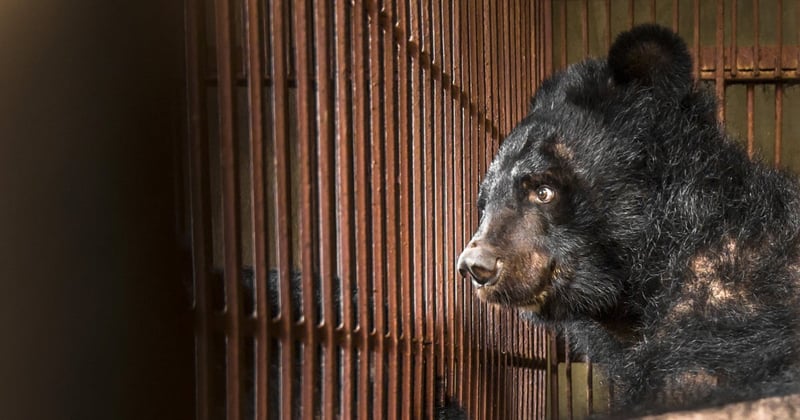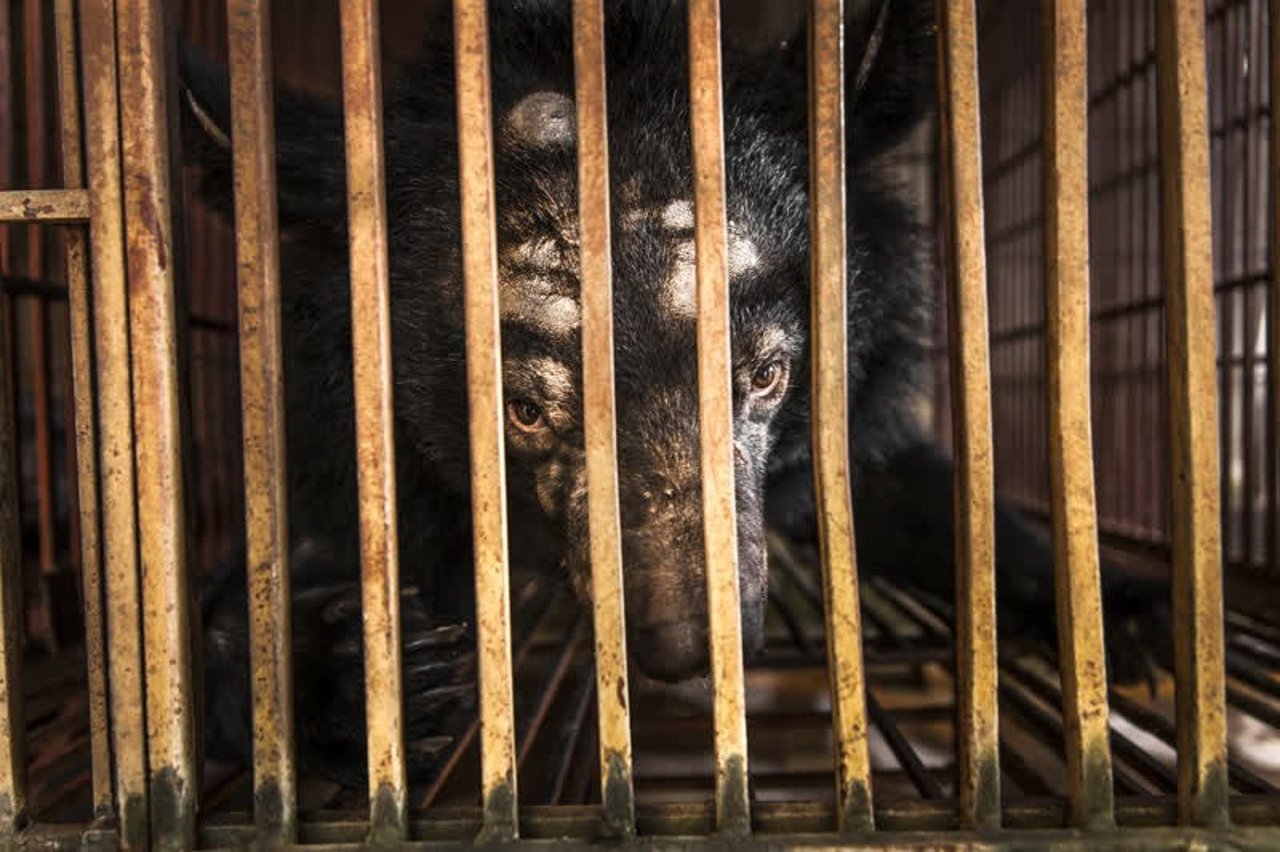
End in sight for cruel bear bile industry in Vietnam
News
We’re a huge step closer to ending the country’s bear bile industry, which involves painfully extracting bile from bears for use in traditional medicine
The province of Hanoi, Vietnam, is a hotspot for captive bears and has a high concentration of farms, and is where the 210 captive bears were re-microchipped. It was completed in partnership with the Hanoi Forest Protection Department.
A 12-year campaign
In 2005, along with Vietnam’s Ministry of Agriculture and Rural Development (MARD) and our local partner Education for Nature Vietnam (ENV), we began inserting microchips in more than 4,300 captive bears on hundreds of farms throughout the country with the best technology available at the time.
This was the first step in a strategic campaign to phase out bear farming in Vietnam, and help prevent any new bears entering farms. The new, improved technology recently used will allow for better monitoring, as it’s not necessary to anaesthetise bears for their microchip to be read.
Now, after successfully re-microchipping 210 captive bears in July, all known captive bears in the province who are medically fit have been microchipped. There were just two bears who could not undergo the process, however we hope to microchip them soon.
This is a huge win, as it will restrict new bears from entering bear bile farms in Hanoi, as registration and microchips are required. It also allows for better monitoring of farms for illegal activities, and will mean an end to the industry in the not-too-distant future.
If a bear is found at a farm without a microchip or appropriate registration paperwork, it is confiscated and taken to a rescue centre or sanctuary.
Dramatic decrease in bears used for their bile
The number of captive bears farmed for their bile in Vietnam has decreased from 4,300 in 2005 to less than 1,300 in 2015, according to the Ministry of Agriculture and Rural Development.
This is thanks to improved laws which make it more difficult for farmers to capture bears from the wild, better enforcement of these laws, and persistent campaigning by us and other organisations.
Vietnam’s Ministry of Agriculture and Rural Development has publicly committed to help end the bear bile industry.
“Bear bile farming is coming to an end. We are continuing to work hard to expedite an end to bear bile farming, working hand in hand with government, local law enforcement and members of the public to see this through to completion,” said Mrs Bui Thi Ha, director of policy and legislative campaigns at ENV.
Continuing the fight for bears
This latest round of -microchipping of 210 bears is part of a new strategy developed by a team of organisations including us, Education for Nature Vietnam, Four Paws International, Four Paws Vietnam, and in partnership with the Vietnamese government.
This new strategy will continue work to ensure the cruel bear bile industry ultimately ends. It will expand the re-microchipping programme to other key provinces in Vietnam where there are high concentrations of captive bears and bear bile farms.
Public opinion on bear bile is shifting
Incredibly, bear bile use in Vietnam has dropped by more than 60% since 2005.
“Our efforts since 2005 have achieved substantial progress and success, but this fight is not over until every bear is protected and the bear bile industry is finished for good in Vietnam," said Karanvir Kukreja, our campaign manager.
This achievement from the public works hand in hand with the huge reduction of bears in farms, and is a clear sign that bear bile farming is coming to an end.
Our efforts since 2005 have achieved substantial progress and success, but this fight is not over until every bear is protected and the bear bile industry is finished for good in Vietnam, said Karanvir Kukreja, our campaign manager.
